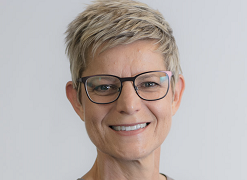Associate Professor Vida Bliokas and the research team at the University of Wollongong were awarded an Innovation Research Grant for their research titled ‘Investigating gender differences in a suicide prevention aftercare program: How can we improve outcomes for all?’.
Research Team Statements
Vida Bliokas
Receiving this grant is important because it will help us to understand the types of interventions that assist people in their recovery following a suicide attempt or following a time when they were at high risk for suicide. We know that not all approaches are suitable for all people, and in particular, men and women may benefit from different approaches. It is important that we understand these differences better, and take this knowledge into account when designing interventions.
Luise Lago
Receiving this grant is important because we know there are gender differences in most aspects of suicidality, and we need to understand these differences in suicide prevention aftercare services. We will interview men and women who have participated in a regional aftercare service, and complement this by analysing data from regional Emergency Departments. The study will be helpful in planning tailored aftercare services, which meet the needs of all participants.
Alex Hains
Research into the engagement and outcomes for people accessing aftercare services is critical to ensuring these new, innovative supports are effective. This funding will enable us to also explore whether there are differences in how men and women respond to aftercare support, thereby highlighting ways we might need to adapt the supports to optimise people’s recovery.
Brin Grenyer
Receiving this grant is important because it will allow us to shine a light on a high risk and under-researched group – vulnerable men – that often have been the hardest to reach yet sadly also the most affected. The great work done here in our area on innovations with aftercare will be significantly enhanced through the learnings promised through the work we can now do with this research.
Rebecca Sng
Receiving this grant is important because as a service provider, we want to make sure we provide the very best service we can. We are particularly interested in those members of our local community who are at greater risk of dying by suicide and that includes men. We know that men often don’t engage with our mental health services as well as women. We are very keen to see how we can best look after these men and how we can make a real difference to their lives.
Tim Heffernan:
Receiving his grant is important as it will allow us to build the evidence base for the peer workforce in this vital space of suicide prevention aftercare. The ability to explore how gender influences responses to peer led aftercare interventions is also a critical piece of knowledge that will allow for the development of services that are tailored for all, regardless of gender. This really is the opportunity to explore an innovative model of peer support.



Comments are closed.